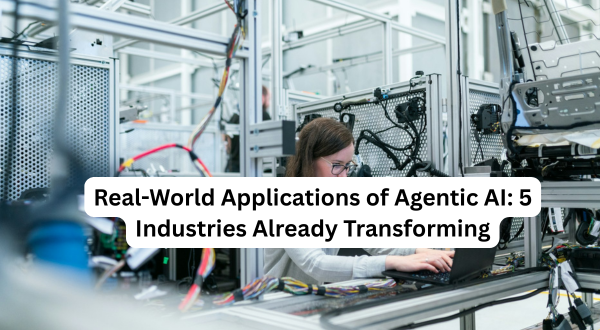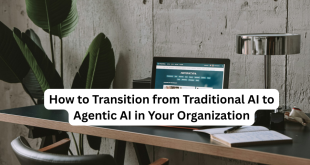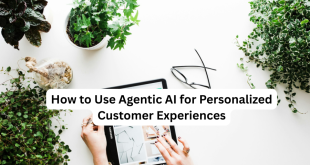In the rapidly evolving landscape of artificial intelligence, Agentic AI stands out as a game-changer. Unlike traditional AI, which relies heavily on human input and predefined rules, Agentic AI systems are autonomous, capable of making decisions and executing tasks with minimal oversight. These intelligent agents are already reshaping industries by streamlining operations, enhancing efficiency, and unlocking new possibilities. Here, we explore five industries where Agentic AI is driving transformative change in 2025.
- Retail: Personalizing Customer Experiences at Scale
In retail, Agentic AI is revolutionizing how businesses engage with customers. Autonomous AI agents analyze vast amounts of data—purchase histories, browsing patterns, and social media activity—to deliver hyper-personalized shopping experiences. For example, AI-driven recommendation engines, like those powering e-commerce giants, now go beyond suggesting products. They dynamically adjust pricing, optimize inventory, and even craft tailored marketing campaigns in real time.
A notable case is Walmart, which uses Agentic AI to manage its supply chain and personalize promotions. These systems predict demand spikes, adjust stock levels, and send targeted offers to customers, boosting sales and reducing waste. By 2025, Gartner estimates that 80% of retail businesses will adopt AI agents to enhance customer experiences, driving a projected $2 trillion in economic value.
- Manufacturing: Streamlining Production with Smart Automation
Manufacturing is undergoing a renaissance thanks to Agentic AI. These systems oversee entire production lines, making real-time decisions to optimize output and minimize downtime. AI agents monitor equipment health, predict maintenance needs, and adjust workflows to meet demand fluctuations—all without human intervention.
Take Siemens, for instance. Its AI-powered “digital twins” simulate factory processes, while Agentic AI optimizes energy use and production schedules. This has slashed operational costs by up to 20% in some plants. By integrating with IoT and edge computing, Agentic AI ensures factories operate at peak efficiency, with McKinsey forecasting a 30% productivity boost in smart factories by 2030.
- Agriculture: Precision Farming for a Sustainable Future
Agentic AI is transforming agriculture by enabling precision farming, where every decision—from planting to harvesting—is data-driven. Autonomous AI agents control drones, robotic harvesters, and irrigation systems, analyzing soil conditions, weather patterns, and crop health in real time. These systems maximize yields while minimizing resource use, addressing global food security and sustainability challenges.
Companies like John Deere are leading the charge, deploying AI agents that manage autonomous tractors and monitor crop conditions. In 2024, such systems increased crop yields by 15% on average while reducing water usage by 25%. As climate change pressures mount, Agentic AI’s ability to optimize farming practices is becoming indispensable.
- Energy: Optimizing Grids and Renewable Integration
The energy sector is leveraging Agentic AI to manage complex grids and accelerate the transition to renewables. AI agents balance supply and demand, predict energy consumption, and optimize the integration of solar and wind power. They also detect and respond to outages faster than human operators, ensuring grid reliability.
For example, Google’s DeepMind uses Agentic AI to optimize its data centers’ energy consumption, cutting cooling costs by 40%. On a larger scale, utilities like Enel employ AI agents to manage distributed energy resources, ensuring stable grids despite fluctuating renewable inputs. With global energy demand expected to rise 50% by 2050, Agentic AI is critical to building resilient, sustainable systems.
- Smart Cities: Powering Urban Efficiency
Smart cities are becoming a reality, and Agentic AI is at the heart of this transformation. These systems manage traffic flow, public safety, and energy distribution, making urban environments more livable and efficient. AI agents analyze data from sensors, cameras, and IoT devices to optimize everything from waste collection to emergency response times.
In Singapore, Agentic AI powers the Smart Nation initiative, reducing traffic congestion by 15% through real-time traffic management. Similarly, Dubai uses AI agents to monitor energy usage in public buildings, cutting consumption by 10%. As urban populations grow, Agentic AI will be key to creating sustainable, connected cities, with projections estimating a $4 trillion market by 2030.
Why Agentic AI Matters Now
The common thread across these industries is Agentic AI’s ability to act autonomously, adapt dynamically, and deliver measurable results. By combining advanced machine learning, real-time data processing, and decision-making capabilities, these systems are not just tools—they’re partners in innovation. However, their rise also raises questions about ethics, security, and human oversight, which businesses must address to ensure responsible adoption.
As we move deeper into 2025, Agentic AI’s impact will only grow. From reducing costs in manufacturing to tackling climate challenges in agriculture and energy, these intelligent agents are proving their worth. The question isn’t whether Agentic AI will transform industries—it’s how quickly businesses and policymakers can harness its potential while navigating its challenges.
 UBUCH ubuch | Honest Tech Reviews & Tutorials for Everyone
UBUCH ubuch | Honest Tech Reviews & Tutorials for Everyone




